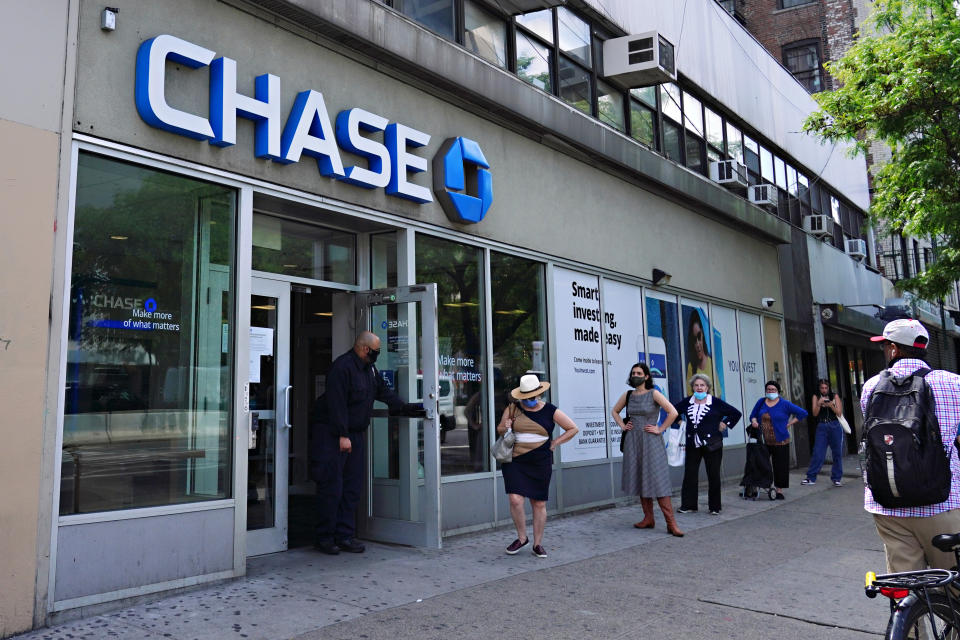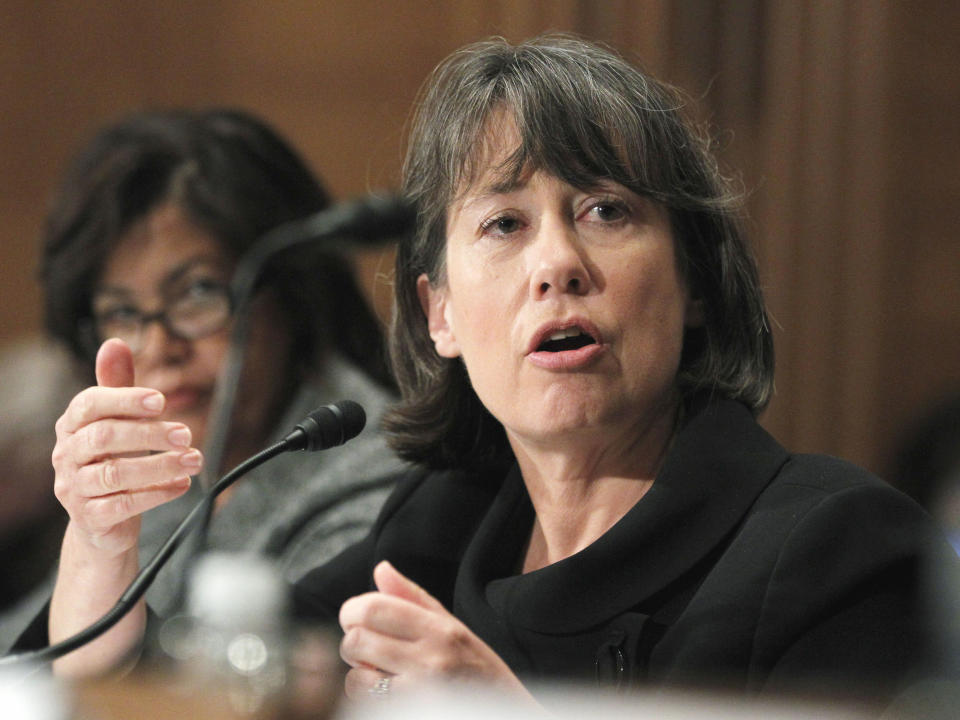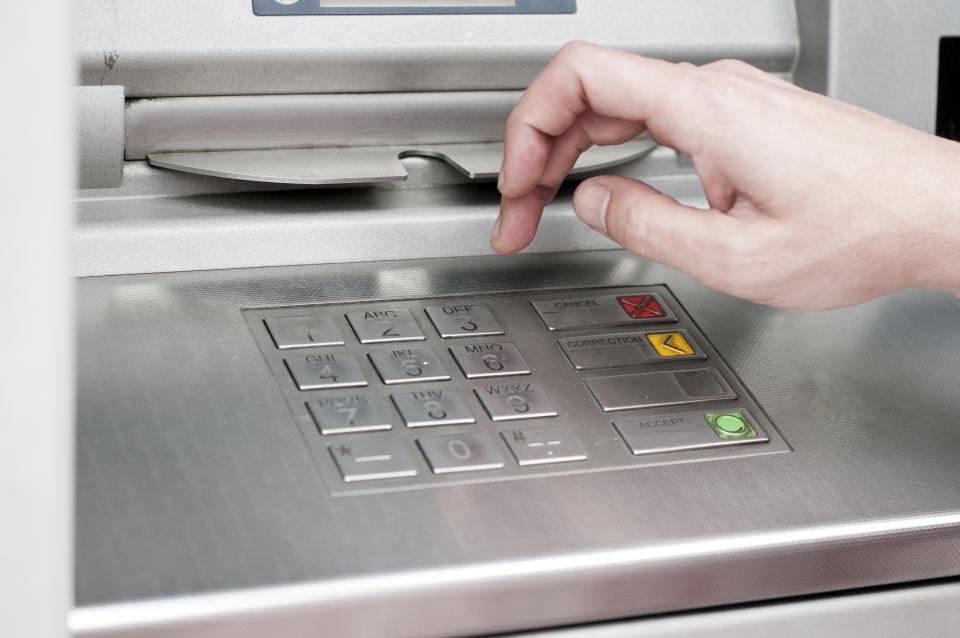Overdraft fees have forced the poor out of banks: Former FDIC chair
In 2019 Americans paid $11.68 billion in bank overdraft fees. Most of these fees (80%) were paid by just 9% of the customers, who are often the bank’s poorest, with balances of around $350 or less, according to the Center for Responsible Lending.
This tends to have a particularly harsh impact on communities of color, which the Center said are already disproportionately excluded from much of the traditional banking system.
Overdraft fees – when a bank charges a customer who spends more than they have in their bank account – aren’t new. But they are at least partly responsible for driving many people to become underbanked, says the Center — and former FDIC Chief Sheila Bair.
“A lot of people who are underbanked used to be banked and they stopped because they got overdraft fees,” said Bair on Yahoo Finance’s On The Move. “They got minimum balance fees, they got a lot of fees they didn’t understand.”
The fees were too complex and not adequately explained to the customers, Bair added.
“It cost them to have that banking account,” said Bair. “It cost them more than it was benefiting them.”

In 2004, 80% of banks would reject a transaction if there were insufficient funds to complete it. Surveys have shown this is widely the consumer preference, but many banks default to a practice that allows the transaction to go through. The bank will pay itself back the difference on the next deposit — which must be made in a few days usually — and add a hefty fee, often as much as $35. With the typical overdraft of around $23, this means the cost of credit is extremely high.
For people whose balances hover close to zero, living paycheck to paycheck, this creates a precarious position.
Post-COVID
Being underbanked is limiting, especially with the shift to online commerce and digital transactions where credit cards are a must-have. But the coronavirus crisis has added another layer of trouble to the underbanked — no way to process financial transactions, like that of a stimulus check.
As part of the $2 trillion stimulus package, or CARES Act, passed in March, a total of $250 billion is being distributed to Americans to help them weather job loss or reduced work hours. As of May 8, the IRS has doled out over 127 million payments totaling $217 billion. But for the underbanked, getting that money via physical check took longer – which then limits options when it comes to cashing it, if you don’t have a bank.

A 2017 FDIC survey estimated that about 6.5% of U.S. households, or 8.4 million households, did not have a checking or savings account.
Bair pointed out that the country has made some progress with the underbanked, but that everyone really does need to have access to a checking account. “We need to really continue to push banks of all sizes to offer these no-fee basic checking accounts for people who just need to do it to process payments,” she said.
A discriminatory system
Bair, who has been a vocal opponent of overdraft fees for years, pointed out that much of the financial system is technically accessible to black communities, but that the products are much higher cost — like defaulting people into predatory overdraft fees.
“We’ve made progress in giving minority and African-American families access to financial services,” said Bair. “They can access it, but it’s still higher cost. I mean, look at what happened with the subprime crisis? The problem wasn’t that the credit was being denied, the problem was they were given high-cost credit.”
Bair saw what she called a tragedy as homeownership among black and Hispanic people increased significantly only to flatline around 2001 when the subprime mortgages started taking off.

“We didn’t increase homeownership rates with minorities from 2001 until the crisis hit,” she said. “We stripped equity. We took the minority families out of their nice, safe, 30-year fixed-rate mortgages, put them into these high-interest-rate loans they did not understand. Their neighborhoods were devastated.”
Today, homeownership has dropped, she added.
“It is just one of a number of areas where even when you have access it is unfair, it is discriminatory, it is higher cost to access,” said Bair. “Those are root economic problems we absolutely need to confront and face. Again, they underpin this broader frustration and anger that’s justifiable that we’re seeing right now.”
--
Ethan Wolff-Mann is a writer at Yahoo Finance focusing on consumer issues, personal finance, retail, airlines, and more. Follow him on Twitter @ewolffmann.
2021 health insurance rates are coming out despite 'unprecedented uncertainty'
McDonald’s to end public soda fountains due to coronavirus pandemic
Insurance premiums expected to rise 4% to 6%, before factoring in COVID
High-yield savings banks finally hit by the Fed's coronavirus rate cut
Follow Yahoo Finance on Twitter, Facebook, Instagram, Flipboard, LinkedIn, and YouTube